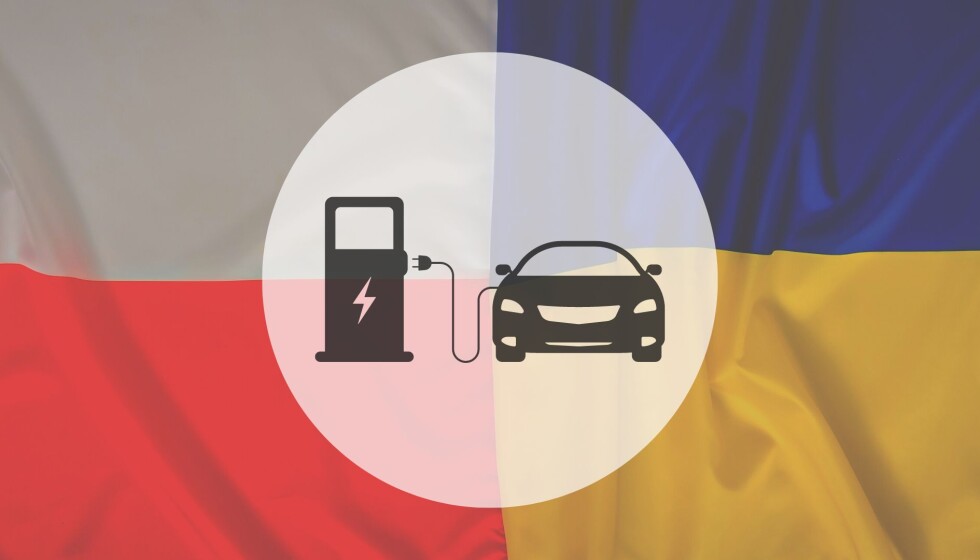The Ukrainian market of electric cars shows records every month. Interest in such cars is growing every month, more and more of them are being brought from abroad. The market indicators turned out to be a record not only for our country, but also in comparison with its European neighbors: the total fleet of electric cars in Ukraine exceeds the Polish one by almost 20,000 cars, writes the Polish Gazeta Prawna, referring to data from the Institute for Car Market Research .
As of the end of July, more than 64,300 electric vehicles were registered in Ukraine, of which about 62,200 are passenger cars and more than 2,000 are trucks. If compared with July 2022, a year ago there were approximately 40.3 thousand electric cars on Ukrainian roads. That is, there was an increase of approximately 60% during the year. The fact that only last month, Ukrainians bought 4,600 cars with zero emissions also shows a positive trend. This is another record on the market: 70.4% more than in July 2022 and 1.3% more than in June 2023.
The scale of development of the Ukrainian market becomes more obvious if you compare these figures with the statistics of the nearest European neighbors. Thus, there are more than 47,000 electric vehicles on the roads of Poland, of which about 42,200 are cars, and more than 4,800 are trucks. In general, the fleet of electric cars in Ukraine exceeds the Polish one by almost 20,000. Poland also lags behind if we compare the number of plug-in hybrids: in Ukraine there are now about 61.7 thousand such cars, in Poland — less than 40.7 thousand.
Liberal rules for importing such cars from abroad contribute to the development of this segment of the car market in Ukraine. When importing a car with an internal combustion engine to Ukraine, you need to pay customs duty, VAT, excise tax and a pension fund fee. "When buying an electric car from abroad, you only need to pay a minimum excise tax of 1 euro per 1 kWh of battery capacity. This way you can save from 40% to 50% compared to the cost of importing cars from DVZ," explains Stanislav Buchatskyi, head of the Institute of Car Market Research. He adds that the increase in interest in electric cars was also influenced by the increase in fuel prices. "These are two main points that influence. We do not have other motivational programs for the purchase or use of electric cars," the expert emphasizes.
Used and relatively inexpensive models predominate among the most popular electric cars. During January-July 2023, more than 2.4 thousand such cars were imported to Ukraine. The first places were: Nissan Leaf (1336 units), Volkswagen e-Golf (1203 units), Tesla Model 3 (1203 units), Volkswagen ID.4 (852 units), Tesla Model Y (838 units) and Renault Zoe (714 units). "The average age of imported electric cars is about 5.1 years. Most of such cars are brought to us from the USA (about 30%), China (about 20%), as well as from Germany, Norway and Poland, says Stanislav Buchatskyi.
What unites Poland and Ukraine in the matter of electric mobility is the still underdeveloped infrastructure of charging stations, although in this area the situation in Ukraine is better compared to Poland. Yes, we have approximately 3,200 public charging stations, where you can use approximately 11,000 connectors. The problem is that often such charging stations are not located at regular gas stations, but in hard-to-reach places. In addition, electric vehicles come to Ukraine from different markets, and therefore with different types of connectors. Because of this, difficulties arise during charging, because depending on the country of origin, the car may have four types of slow connectors and five types of fast ones.
For comparison, in the summer of 2023, more than 2,900 charging stations with approximately 5,900 connectors were operating in Poland. Despite the investment, growing demand for such services and financing of the sector in Poland, the expansion of the network of charging stations is not accelerating too much, assesses Aleksandr Raich, a member of the board of the Polish Association of Alternative Fuels. As the expert explains, the situation may change as a result of the European regulation of the infrastructure of alternative fuels (AFIR). — "If the authorities want to avoid penalties for non-compliance with the requirements of the law, it is necessary to make legal changes that will lead, in particular, to simplifying the procedures for connecting charging stations, implementing mechanisms that will facilitate and encourage energy companies to invest in network expansion," says a member of the board of the association.
Subscribe to the Telegram channel of the Auto Market Research Institute to be the first to receive information without advertising or spam.



